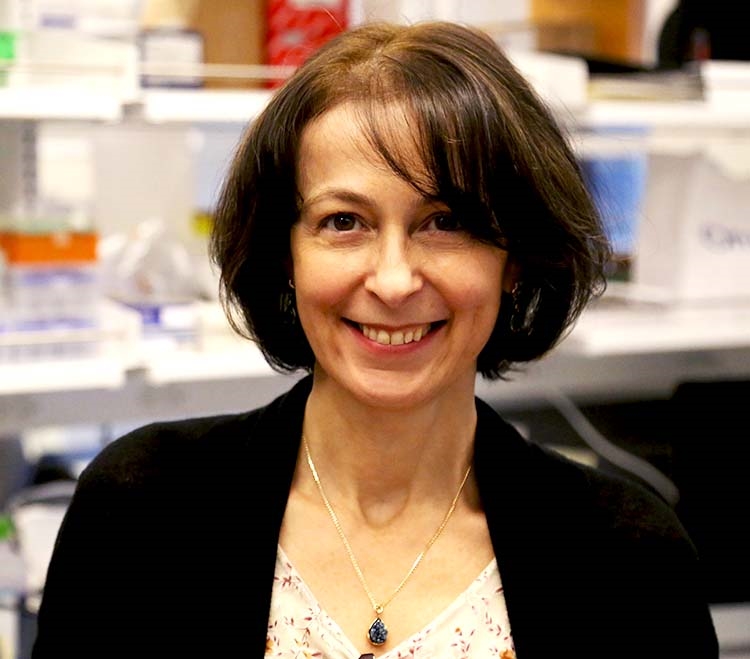
The Arkansas Integrative Metabolic Research Center will host a Zoom seminar at 1 p.m. on Tuesday, March 15, featuring Dr. Sandra Demaria of Weill Cornell Medical College, who will discuss how most cancer cells exposed to ionizing radiation do not undergo immediate death even when the damage is lethal, but remain within the tumor mass for some time, during which they generate molecular signals that modify the cross-talk of the tumor with the host immune system.
Central to this process is the activation of the DNA damage repair (DDR) response, which is often dysregulated in neoplastic cells, and associated with DNA displacement to the cytosol where it activates innate immune signaling via the cGAS/STING pathway, leading to the production of type I interferon (IFN-I), a critical effector of cell-mediated anti-viral and anti-tumor immunity. Radiation also enhances the release of immune-stimulating ATP, NAD+ and cGAMP, but ectonucleotidases that are expressed in the tumor and further induced by radiation convert these nucleotides into immunosuppressive adenosine. Thus, the balance of immune-activating and suppressive signals determines the ability of radiation to promote anti-tumor immunity.
Demaria, who holds a Doctor of Medicine, is a professor of radiation oncology and pathology and laboratory medicine at Weill Cornell Medicine. She obtained her M.D. from the University of Turin, and then moved to New York City for her post-doctoral training in immunology, followed by a residency in anatomic pathology at NYU School of Medicine.
Demaria is internationally known for her pioneering studies demonstrating the synergy of radiation with immunotherapy. Her lab has a central interest in addressing the molecular mechanisms that regulate ionizing radiation's ability to generate an in situ tumor vaccine in both preclinical models as well as cancer patients. Seminal findings from her lab include the demonstration that radiation upregulates the expression of chemokines that attract effector T cells to the tumor, activates canonical pathways of viral defense that elicit the production of interferons and enhances the production and presentation by cancer cells of mutational neoantigens recognized by T cells.
If you have any questions about this event, please contact Kimberley Fuller.
Topics
Contacts
Sarah Grace Brown, communications coordinator
Division of Research and Innovation
479-575-6874,